-
 Bitcoin
Bitcoin $78,373.8303
-0.11% -
 Ethereum
Ethereum $1,531.6531
-1.53% -
 Tether USDt
Tether USDt $0.9995
0.01% -
 XRP
XRP $1.9048
1.47% -
 BNB
BNB $559.9924
1.56% -
 USDC
USDC $1.0002
0.03% -
 Solana
Solana $107.5072
1.69% -
 Dogecoin
Dogecoin $0.1511
2.62% -
 TRON
TRON $0.2338
2.77% -
 Cardano
Cardano $0.5955
3.90% -
 UNUS SED LEO
UNUS SED LEO $8.9977
0.71% -
 Toncoin
Toncoin $3.0684
2.19% -
 Chainlink
Chainlink $11.4417
1.94% -
 Stellar
Stellar $0.2326
1.15% -
 Avalanche
Avalanche $17.2377
5.01% -
 Hedera
Hedera $0.1597
10.81% -
 Shiba Inu
Shiba Inu $0.0...01118
-1.14% -
 Sui
Sui $2.0157
2.33% -
 MANTRA
MANTRA $6.2197
-0.86% -
 Polkadot
Polkadot $3.5947
-0.16% -
 Bitcoin Cash
Bitcoin Cash $280.4531
3.09% -
 Litecoin
Litecoin $71.4956
1.82% -
 Dai
Dai $1.0002
0.03% -
 Ethena USDe
Ethena USDe $0.9990
0.05% -
 Bitget Token
Bitget Token $4.0847
0.49% -
 Pi
Pi $0.5760
-1.02% -
 Hyperliquid
Hyperliquid $11.6091
4.45% -
 Monero
Monero $203.0612
1.83% -
 Uniswap
Uniswap $5.1038
-0.16% -
 OKB
OKB $52.6405
3.22%
How does NFT Security protect NFTs from hacker attacks?
NFT security depends on blockchain immutability, audited smart contracts, secure wallets, and user vigilance; attacks exploit contract flaws, compromised wallets, or phishing, demanding a layered defense strategy.
Mar 03, 2025 at 05:00 am
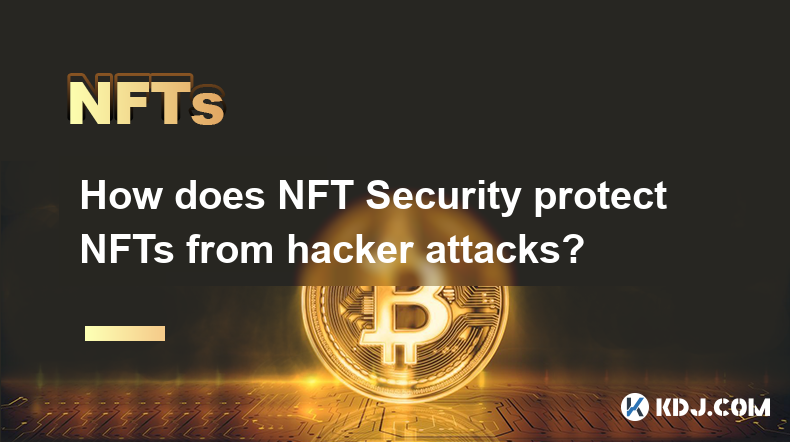
Key Points:
- NFT security relies on a multi-faceted approach, encompassing blockchain technology's inherent security, smart contract auditing, secure wallets, and user best practices.
- Hacker attacks targeting NFTs primarily exploit vulnerabilities in smart contracts, compromised wallets, or phishing scams.
- Robust security measures minimize the risk but cannot eliminate it entirely; vigilance and proactive security practices are crucial.
- Understanding the different attack vectors and implementing appropriate safeguards is essential for NFT owners and developers.
How Does NFT Security Protect NFTs From Hacker Attacks?
The security of Non-Fungible Tokens (NFTs) is a critical concern, given their rising value and popularity. While NFTs themselves are inherently secure due to their existence on a blockchain, the ecosystem surrounding them presents vulnerabilities. This includes the smart contracts that govern their functionality and the wallets used to store them. A robust approach to NFT security requires a layered defense strategy.
Blockchain Technology's Role in NFT Security
The foundation of NFT security rests on the immutability and transparency of the blockchain. Once an NFT is minted and recorded on the blockchain, altering its details is computationally infeasible. This inherent security significantly hinders fraudulent activities like counterfeiting. The decentralized nature of the blockchain also makes it more resilient to single points of failure, unlike centralized databases.
Smart Contract Security: The Heart of the Matter
Smart contracts are the programs that define the rules and functionalities of an NFT. Vulnerabilities within these contracts are prime targets for hackers. A poorly written or inadequately audited smart contract can expose NFTs to theft or manipulation. Therefore, thorough audits by independent security firms are crucial before deploying any smart contract.
Secure Wallet Management: Your First Line of Defense
The security of your NFT collection largely depends on the security of your cryptocurrency wallet. Hardware wallets, which store private keys offline, offer the highest level of security. Software wallets, while convenient, require strong passwords and two-factor authentication (2FA) to minimize the risk of unauthorized access.
Common Attack Vectors and Mitigation Strategies
Several attack vectors exploit vulnerabilities in the NFT ecosystem. Understanding these is vital for implementing effective security measures.
- Smart Contract Exploits: Hackers identify and exploit vulnerabilities in smart contract code to steal NFTs or manipulate their properties. Rigorous auditing and penetration testing can significantly mitigate this risk.
- Phishing Attacks: Phishing scams deceive users into revealing their private keys or seed phrases, granting hackers access to their wallets and NFTs. Never share your private keys with anyone, and only interact with verified platforms and websites.
- Wallet Compromises: Weak passwords, lack of 2FA, and malware infections can compromise wallets, leading to NFT theft. Always use strong, unique passwords and enable 2FA whenever possible. Regularly scan your devices for malware.
- Sybil Attacks: These attacks involve creating numerous fake identities to manipulate the NFT marketplace. Robust identity verification systems on NFT marketplaces can help counter this.
- Denial-of-Service (DoS) Attacks: These attacks aim to disrupt the functionality of NFT marketplaces or platforms, making them inaccessible to legitimate users. Strong infrastructure and DDoS mitigation techniques are necessary to combat these attacks.
Best Practices for Enhanced NFT Security
- Use a Hardware Wallet: Hardware wallets offer the most secure way to store your private keys.
- Enable Two-Factor Authentication (2FA): Adding an extra layer of security significantly reduces the risk of unauthorized access.
- Regularly Update Your Software: Keep your software and operating systems up-to-date to patch security vulnerabilities.
- Only Use Reputable Marketplaces and Platforms: Avoid interacting with unknown or untrusted platforms.
- Be Wary of Phishing Attempts: Never click on suspicious links or share your private keys with anyone.
- Diversify Your NFT Holdings: Don't put all your eggs in one basket.
Frequently Asked Questions (FAQs)
Q: Are NFTs truly secure on the blockchain?
A: The blockchain itself offers strong security against alteration. However, vulnerabilities can exist in smart contracts, wallets, and user practices. The overall security depends on the combination of these factors.
Q: How can I protect my NFTs from smart contract exploits?
A: Only buy NFTs from reputable projects with thoroughly audited smart contracts. Be wary of projects lacking transparency or independent audits.
Q: What is the best type of wallet for storing NFTs?
A: Hardware wallets offer the highest level of security, but software wallets with strong security practices are also viable options.
Q: Can I recover my NFTs if my wallet is compromised?
A: Recovery depends on the circumstances. If you have a backup of your seed phrase, you might be able to recover your wallet and NFTs. However, if your seed phrase is compromised, recovery is unlikely.
Q: What should I do if I suspect a phishing attack?
A: Do not click any links or provide any information. Report the suspicious activity to the relevant authorities and platforms.
Q: How can I verify the authenticity of an NFT?
A: Verify the NFT's provenance on the blockchain and check the project's official website and community for legitimacy. Be cautious of unofficial marketplaces or sellers.
Q: Are all NFTs equally secure?
A: No, the security of an NFT depends on the security practices of the project that created it, the smart contract's code, and the user's security practices.
Disclaimer:info@kdj.com
The information provided is not trading advice. kdj.com does not assume any responsibility for any investments made based on the information provided in this article. Cryptocurrencies are highly volatile and it is highly recommended that you invest with caution after thorough research!
If you believe that the content used on this website infringes your copyright, please contact us immediately (info@kdj.com) and we will delete it promptly.
- Qubetics (TICS): The Rising Star
- 2025-04-08 23:50:12
- DOGEN and BONK Could Witness an Unprecedented Growth of 12,500% in 2024
- 2025-04-08 23:50:12
- A Donald Trump United States presidency would be “bearish” for memecoins
- 2025-04-08 23:45:12
- President Donald Trump's Family-Backed World Liberty Financial (WLFI) Pitched Its USD1 Stablecoin
- 2025-04-08 23:45:12
- $12.50
- 2025-04-08 23:40:12
- MOG Coin Price Prediction 2024
- 2025-04-08 23:40:12
Related knowledge
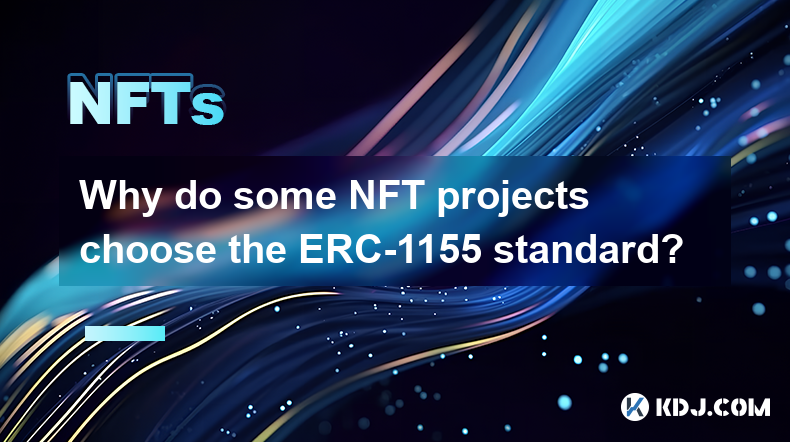
Why do some NFT projects choose the ERC-1155 standard?
Apr 08,2025 at 11:49am
The world of Non-Fungible Tokens (NFTs) has seen a significant rise in popularity and innovation, leading to the development of various token standards. Among these, the ERC-1155 standard has emerged as a versatile and efficient choice for many NFT projects. This article delves into the reasons why some NFT projects opt for the ERC-1155 standard, explor...
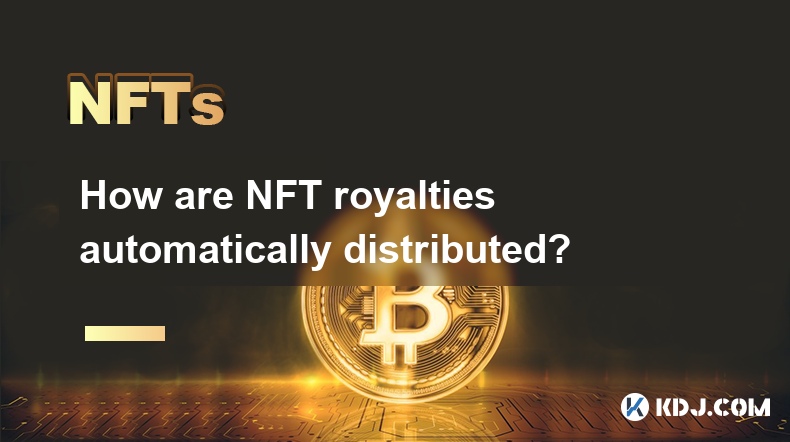
How are NFT royalties automatically distributed?
Apr 08,2025 at 08:14pm
NFTs, or Non-Fungible Tokens, have revolutionized the digital art and collectibles market by providing a way to prove ownership and authenticity of digital assets. One of the most intriguing features of NFTs is the ability to automatically distribute royalties to creators whenever their work is resold. This article will delve into the mechanisms behind ...
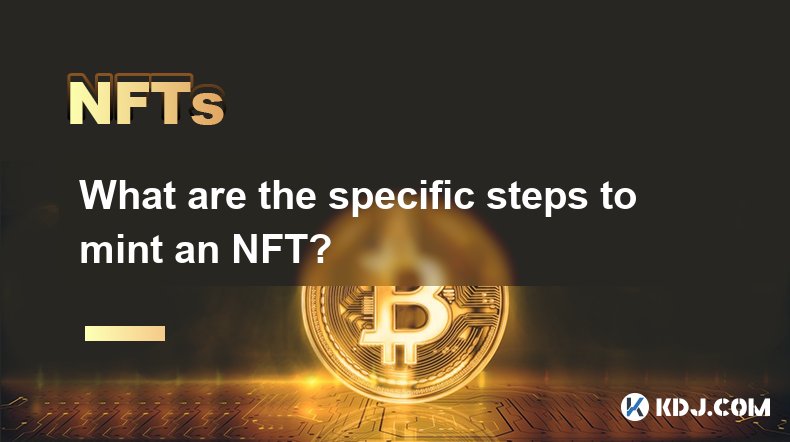
What are the specific steps to mint an NFT?
Apr 08,2025 at 05:22pm
Introduction to NFT MintingMinting an NFT, or Non-Fungible Token, involves creating a unique digital asset on a blockchain. This process allows artists, creators, and collectors to tokenize their work, ensuring its authenticity and ownership. Understanding the steps to mint an NFT is crucial for anyone looking to enter the world of digital collectibles....
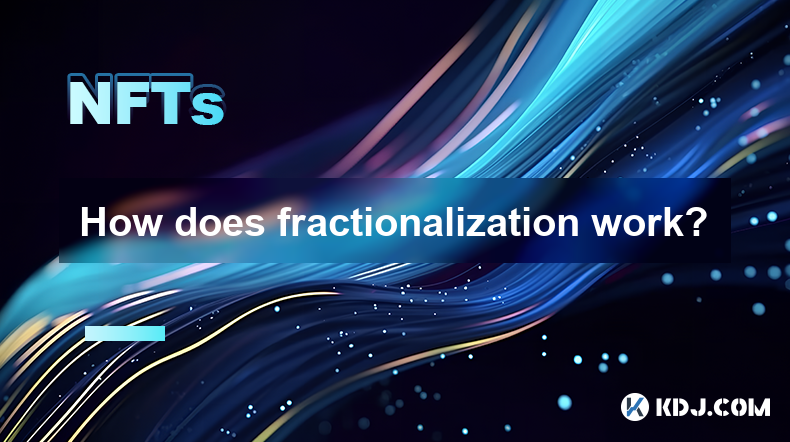
How does fractionalization work?
Apr 08,2025 at 07:42pm
How does fractionalization work? Fractionalization in the context of cryptocurrencies and blockchain technology refers to the process of dividing a single asset into smaller, more manageable pieces. This concept has revolutionized the way investors and users interact with high-value assets, making them more accessible and liquid. In this article, we wil...
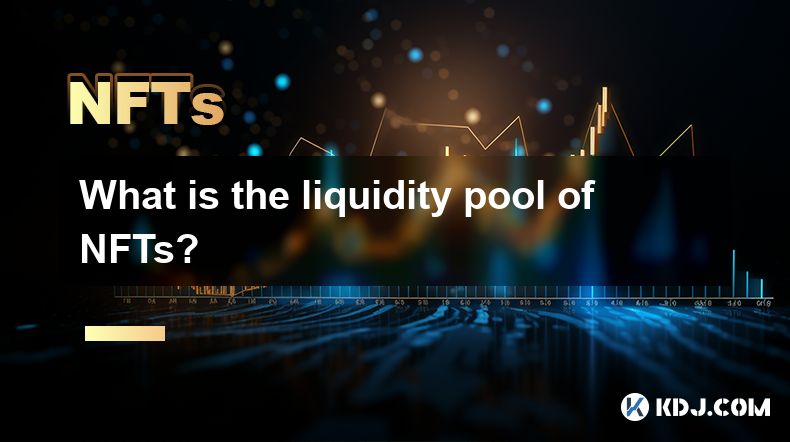
What is the liquidity pool of NFTs?
Apr 08,2025 at 05:35pm
The concept of liquidity pools has become increasingly popular within the cryptocurrency and decentralized finance (DeFi) ecosystems. While traditionally associated with token swaps, the idea has extended to the realm of Non-Fungible Tokens (NFTs). Liquidity pools for NFTs are mechanisms that facilitate the trading and exchange of these unique digital a...
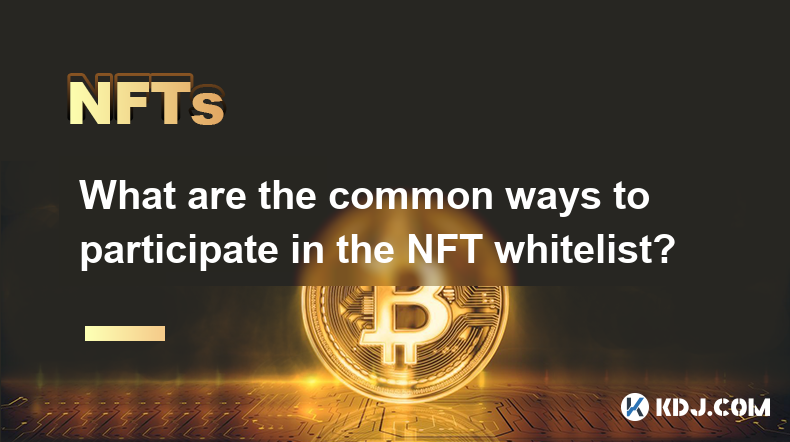
What are the common ways to participate in the NFT whitelist?
Apr 08,2025 at 08:28pm
Participating in an NFT whitelist can be an exciting opportunity for enthusiasts and investors looking to secure their spot in upcoming NFT drops. The whitelist often grants early access or special privileges, such as lower minting fees or guaranteed allocations. Here, we will explore the common ways to participate in an NFT whitelist, detailing each me...

Why do some NFT projects choose the ERC-1155 standard?
Apr 08,2025 at 11:49am
The world of Non-Fungible Tokens (NFTs) has seen a significant rise in popularity and innovation, leading to the development of various token standards. Among these, the ERC-1155 standard has emerged as a versatile and efficient choice for many NFT projects. This article delves into the reasons why some NFT projects opt for the ERC-1155 standard, explor...

How are NFT royalties automatically distributed?
Apr 08,2025 at 08:14pm
NFTs, or Non-Fungible Tokens, have revolutionized the digital art and collectibles market by providing a way to prove ownership and authenticity of digital assets. One of the most intriguing features of NFTs is the ability to automatically distribute royalties to creators whenever their work is resold. This article will delve into the mechanisms behind ...

What are the specific steps to mint an NFT?
Apr 08,2025 at 05:22pm
Introduction to NFT MintingMinting an NFT, or Non-Fungible Token, involves creating a unique digital asset on a blockchain. This process allows artists, creators, and collectors to tokenize their work, ensuring its authenticity and ownership. Understanding the steps to mint an NFT is crucial for anyone looking to enter the world of digital collectibles....

How does fractionalization work?
Apr 08,2025 at 07:42pm
How does fractionalization work? Fractionalization in the context of cryptocurrencies and blockchain technology refers to the process of dividing a single asset into smaller, more manageable pieces. This concept has revolutionized the way investors and users interact with high-value assets, making them more accessible and liquid. In this article, we wil...

What is the liquidity pool of NFTs?
Apr 08,2025 at 05:35pm
The concept of liquidity pools has become increasingly popular within the cryptocurrency and decentralized finance (DeFi) ecosystems. While traditionally associated with token swaps, the idea has extended to the realm of Non-Fungible Tokens (NFTs). Liquidity pools for NFTs are mechanisms that facilitate the trading and exchange of these unique digital a...

What are the common ways to participate in the NFT whitelist?
Apr 08,2025 at 08:28pm
Participating in an NFT whitelist can be an exciting opportunity for enthusiasts and investors looking to secure their spot in upcoming NFT drops. The whitelist often grants early access or special privileges, such as lower minting fees or guaranteed allocations. Here, we will explore the common ways to participate in an NFT whitelist, detailing each me...
See all articles






















































































